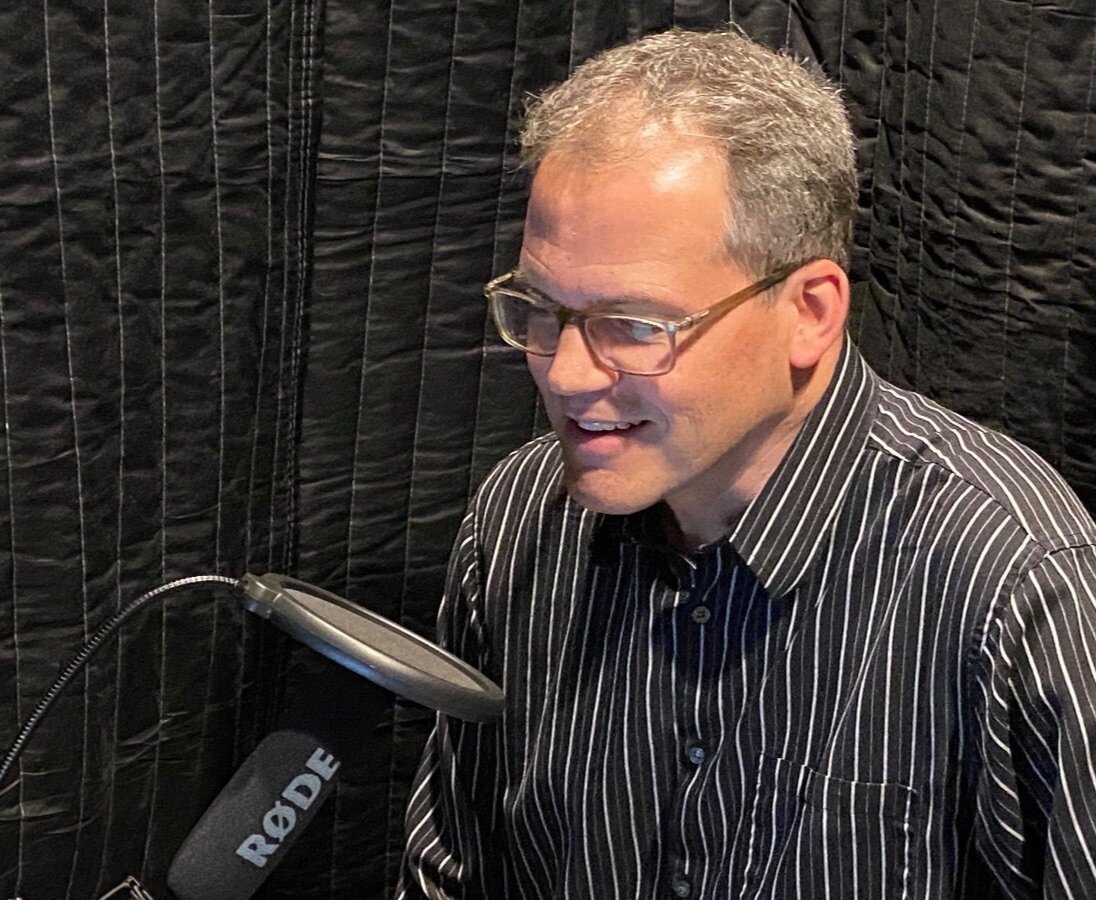May 2020
The average human life lasts 650,000 hours. How will you spend yours?
Mary Latham traveled American for three years seeking stories of kindness.
Four Quotes That Will Make You Think
Recently I interviewed several doctors for a story on how physicians are coping with sickness and stress from COVID-19. With each conversation, I noticed something. The usual greetings—How are you? I’m fine, how are you?—possessed a new weight. Even though we were strangers, we were truly asking each other, How ARE you? How are you holding up?
One of the upsides of my job is that I talk almost daily to dedicated, generous, passionate, compassionate people. Here are four quotes, some inspiring, some sad, that have stood out from recent interviews:
“I don’t want to be concerned about trivial things anymore. I want to spend time on the things that are really important.” Malika Fair, MD, is a physician in the department of emergency medicine at George Washington University. She’s also a widower and a new mother with a four-month-old daughter. And like many people, she’s reconsidering how she spends her 650,000 hours of life.
“There are always going to be tragedies in the world, but there will always be more good—you just have to look for it.” Mary Latham’s mother told her this following the Sandy Hook shootings in 2012. After her mom died, Mary spent three years driving through all 50 states, staying “in Hillary homes and Trump homes” and recording stories of human kindness. I wrote about her emotional journey for my recent “Everyday Heroes” column for The Saturday Evening Post.
“It’s a terrible way to die. It keeps me up at night.” Evelyn Granieri, MD, is a longtime geriatrician at the New York-Presbyterian / Columbia University Medical Center and she told me about dementia patients with COVID-19. They’re often confused and frightened by the masked faces that surround them. Many are men, and in their delirium, they call out for their wives. But Granieri has witnessed more altruism and camaraderie at the hospital than at any time in her career.
“Remember that pandemic? What did you do? ‘Oh, I sat around and watched Netflix.’ That’s bullshit. You’ve got to make things happen.” John Alex is a financial planner, but he’s also the founder of United Aid Foundation (UAF), a disaster relief org that has worked in such devastated areas as the Bahamas after Hurricane Dorian. I met John in January in Mali, where UAF was working with One Global Village. Not one to waste time, Alex is not only working with his financial clients during the pandemic, but he started a charity drive through YouGiveGoods.com and he’s taking an online tai chi class. Small actions matter, he says. “Ask your elderly neighbors if they need help," he says. "We can all do something.”
Has the pandemic changed your perspective on life? Send me your thoughts at ken@650000hours.com. —Ken Budd
SOME PERSONAL NEWS
We’ve recorded the first episode of the new 650,000 Hours podcast! Each episode will share stories about ordinary but extraordinary people who are maximizing their time on Earth (guests will include Mary Latham and John Alex, who were quoted above). Coming soon!
My Washington Post Magazine story on the Calvary Zion children’s home in Kenya will appear in the 2020 edition of Best American Travel Writing. The book will be published by Houghton Mifflin in November.
See The World
When I received a six-week sabattical from an employer, I volunteered for two weeks in Costa Rica.
Sick of being at home? Even a forced sabbatical can be beneficial if it’s used the right way, writes DJ DiDonna for QZ.com.
Yale University is offering “The Science of Well Being,” the most popular course in its history, for free online. The course focuses on misconceptions about happiness and how to live a more fulfilling life.
Plus: Why giving back matters now more than ever (Elaine Lipworth, Thrive Global) and eight tips for sleeping better during the pandemic (Ruth C. White, Fast Company).
Live Your Best Life
For 20 years, Alan Graham has transformed the lives of homeless individuals in Austin, Texas.
What's driving America's homeless crisis? Alan Graham says it’s a catastrophic loss of family. I profiled Graham and a remarkable community he’s created for my “Everyday Heroes” column.
This gritty, beautiful as-told-to story by Eli Saslow of The Washington Post shares how a small grocer in New Orleans is helping locals who are struggling to pay the bills.
Plus: My profiles of 86-year-old Earthwatch volunteer Warren Stortroen and globetrotting surgeon Tammy Neblock-Beirne won gold and honorable mention awards in the 2020 North American Travel Journalists Association awards.
Meet Amazing People
I was in Barcelona when I learned that my mom had died.
Back in 2015, I wrote a piece for NationalGeographic.com called “When Travel Goes Wrong.” It tells the stories of travelers—myself included—who suffered painful moments far from home, yet also gained something surprising.
The Sierra Club asked its members to send them travel photos and the results—from Lake Michigan to New Zealand—are spectacular.
Plus: How we’ll we know it’s safe to travel again from consumer advocate Christopher Elliott (USA Today), what travel writers are reading right now (Tim Ecott, The Guardian), and the story of a dozen rafters who went off the grid for a 25-day rafting trip and returned to a pandemic (Charlie Warzel, The New York Times).
Photo of the Month
In February, I traveled to Guatemala with a team from Kansas City University who were running a series of clinics. These ladies made an excellent lunch (I’m the one in the middle).





